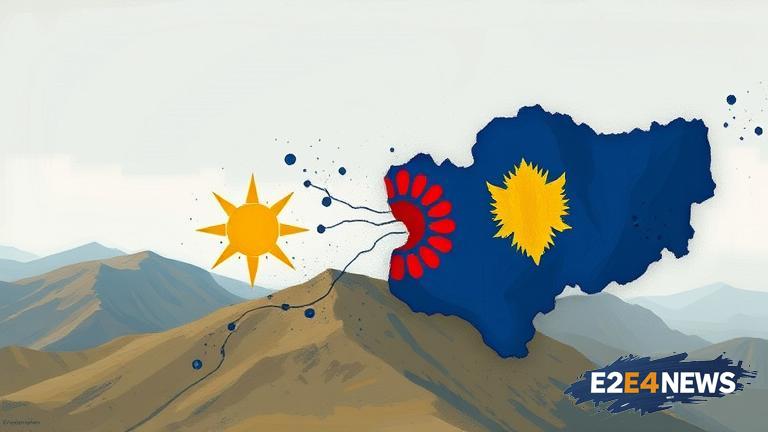Kosovo, a small landlocked country in the Balkans, has a complex and delicate relationship with its neighboring countries. The country declared independence from Serbia in 2008, but its status as a sovereign state is still not recognized by all countries. Kosovo’s neighborly relations are shaped by its history, geography, and politics. The country shares borders with Serbia, North Macedonia, Montenegro, and Albania. Each of these countries has its own unique relationship with Kosovo, ranging from cooperation to tension. Serbia, in particular, has a contentious relationship with Kosovo, with many Serbs still refusing to recognize Kosovo’s independence. The two countries have been engaged in a dialogue facilitated by the European Union, but progress has been slow. Meanwhile, Kosovo has developed close relationships with other neighboring countries, such as Albania and North Macedonia. The three countries have cooperated on issues such as trade, security, and infrastructure development. However, Kosovo’s relationship with Montenegro has been more complicated, with tensions arising over issues such as border demarcation and minority rights. Despite these challenges, Kosovo has made significant progress in recent years in developing its relationships with neighboring countries. The country has also become a member of several international organizations, including the International Monetary Fund and the World Bank. Kosovo’s neighborly relations are also influenced by the country’s aspirations to join the European Union and NATO. The country has been working to meet the criteria for membership in these organizations, including strengthening its democratic institutions and improving its human rights record. However, the process has been slow, and Kosovo still faces significant challenges in its bid to join the EU and NATO. In recent years, Kosovo has also developed relationships with countries outside of the region, including the United States and Turkey. These relationships have been driven by a range of factors, including economic cooperation, security, and cultural exchange. Despite the progress that has been made, Kosovo’s neighborly relations remain complex and delicate. The country must navigate a range of challenges, including historical tensions, political differences, and economic disparities. However, with its strategic location in the heart of the Balkans, Kosovo has the potential to play a key role in regional cooperation and stability. The country’s relationships with neighboring countries will be critical in determining its future trajectory, and Kosovo must continue to work to build trust and cooperation with its neighbors. In conclusion, Kosovo’s neighborly relations are a complex and multifaceted issue, with a range of challenges and opportunities. The country must continue to navigate these relationships carefully, building on areas of cooperation while addressing areas of tension. With its rich history, cultural heritage, and strategic location, Kosovo has the potential to play a key role in regional cooperation and stability, and its relationships with neighboring countries will be critical in determining its future trajectory.
